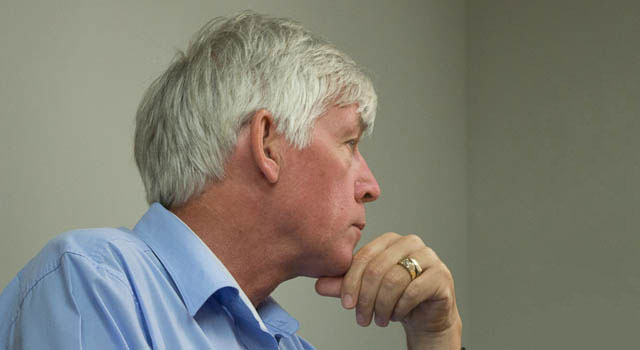
Roy Kruger, technical adviser to communications minister Dina Pule, says Telkom is set to stage a turnaround despite being overstaffed “like all government entities”.
He says Pule has submitted several proposals, including a recommendation, on the company’s future to cabinet. He says cabinet will announce its decision in coming months.
Telkom is key to achieving government’s goals of universal broadband access by 2020 and subsidies may be required to drive uptake, he says.
Earlier this month, Kruger made controversial comments suggesting, among other things, that a proposed sale of 20% of Telkom’s equity to Korea’s KT Corp was a “rubbish” deal and insinuating, without naming her, that outgoing Telkom CEO Nombulelo Moholi was part of the “problem” at Telkom. His comments prompted Pule to express “regret” at Kruger’s remarks.
“Private companies are looking after profitable areas while government is obliged to look after rural areas,” Kruger says. “The two sectors aren’t talking to each other.”
Telkom has to be the foundation for roll-out of broadband to rural areas, he adds.
“As we’ve said over the last few months, the ministry was given a mandate to come up with solutions [for Telkom], which we’ve done. We have a number of options and have recommended one. Cabinet needs to make recommendations on this and, although I can’t be specific about the [minister’s] recommendation, I can tell you that you will see a massive turnaround in Telkom and its roll-out plans.”
Kruger says that, like all government entities, Telkom is overstaffed. “The company has 22 000 people to support,” he says. “It’s not the most cost effective, and it could probably manage with a quarter of the staff.”
As part of the new strategy for Telkom, Kruger says the department of communications has looked at the A$36bn National Broadband Network (NBN) being built in Australia by the state-owned NBN Co. “That’s what we’d like to do here,” Kruger says. “We want to create a wholesale network that will open the market to new players.”
Australia’s NBN project will eventually see high-speed fibre-optic networks connecting 93% of that country’s homes and businesses at speeds of up to 1Gbit/s.
Kruger says one of the challenges in achieving universal access is ensuring there is sufficient demand from consumers. “If you look at the [department of communications’ broadband] policy document, it says government needs to come up with incentives, and these are two-fold: physical devices so people can take up broadband when it’s rolled out, and then some sort of subsidy scheme for the bandwidth.”
Kruger says South Africa is a developing country and, as such, should consider, for example, providing government subsidies for connectivity in rural areas for five years. The classification of “rural” could be done using living standards measures or similar measurements. “Within five years, a connected rural area should lift itself up,” Kruger says. “New businesses should be created, new entrepreneurs should emerge, and this should bolster wealth in those areas.”
After five years, government could reduce or phase out the subsidies and, by then, the rural communities should then be generating the demand and the means to take over the cost of connectivity themselves.
Telkom remains key to providing this infrastructure, whether or not it is subsidised to do so. “Telkom has 144 000km of fibre-optic networks, which is nine to 10 times the capacity of all the other fibre-optic networks in SA. It makes sense that government should make use of this.”
However, Kruger says the role the state can play in the company’s future remains limited. “What you have to understand is, although the department looks after Telkom, it’s still a private company. We can influence it as a shareholder, but that is all.” — (c) 2012 NewsCentral Media

